For most 22-year-olds, going on a trip to the shops on their own can feel part of everyday life – but for Kaisha Robertson, it’s been virtually impossible for the last few years.
Kaisha is living with a series of health conditions that have severely impacted her joints and overall movement – to the point she’s become virtually housebound, as moving around can leave her in a lot of pain.
Now, however, she says we have not only supported her with physiotherapy, but our Welfare team has also helped give her some valuable independence back – by funding a motorised wheelchair so she can get about unaided, without having to be driven by her parents.
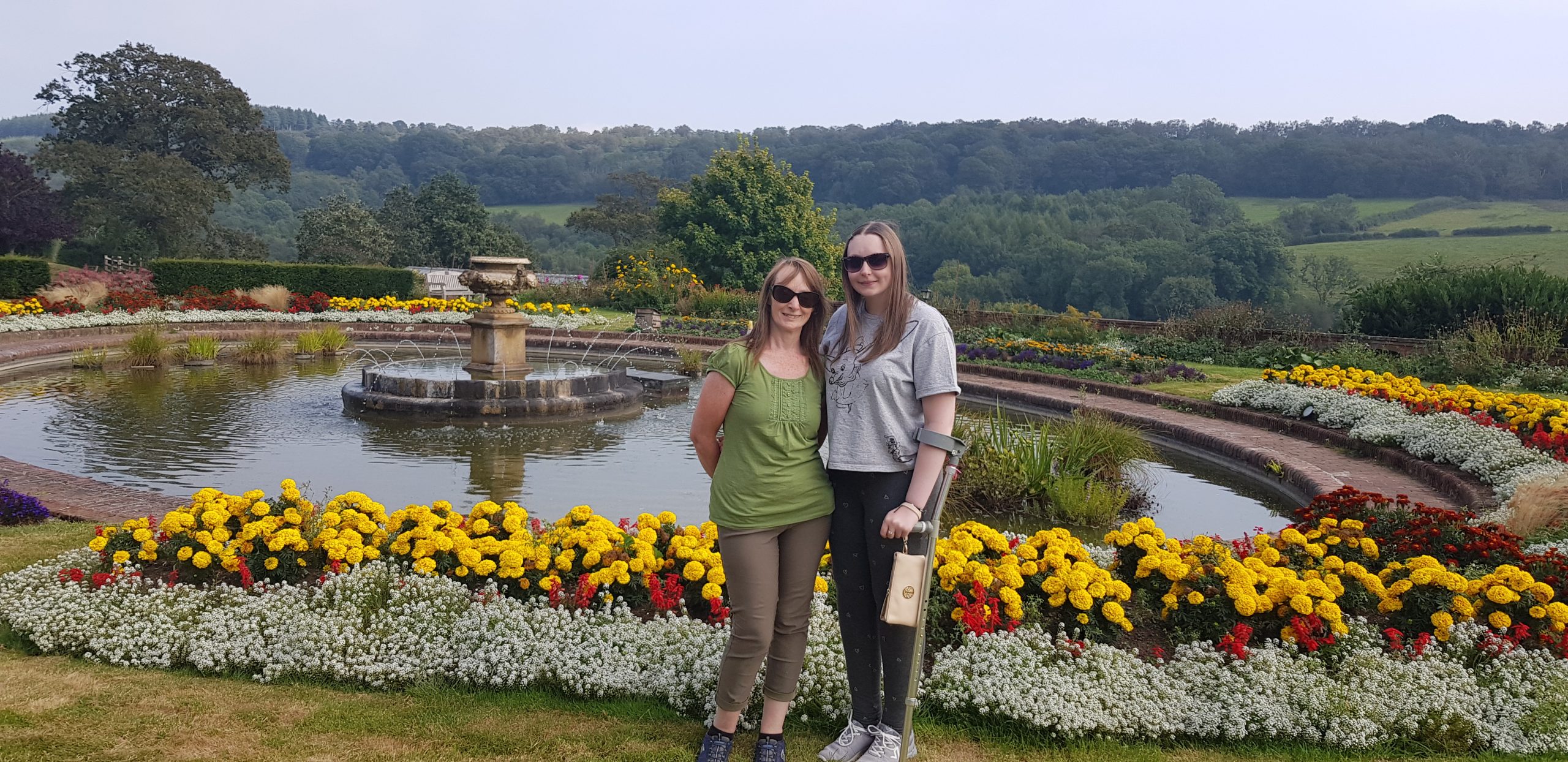
“I have lots of different problems with my hips. I have hip dysplasia, a raised pelvis, labral tears in both of them and a femoral head groove,” says Kaisha, whose father, Mark, worked in Wales, Suffolk and finally Lancashire Fire and Rescue Service, before medically retiring after more than 24 years.
Kaisha was just 11 years old when she started noticing some problems with her legs. At 13, she had to have both of them realigned in a procedure which included having 52 bolts and screws put in.
While that helped a lot, Kaisha – who now lives in Devon with her family – has since developed the further issues with her hips too, which in time led to restrictions to her movement and a great deal of pain.
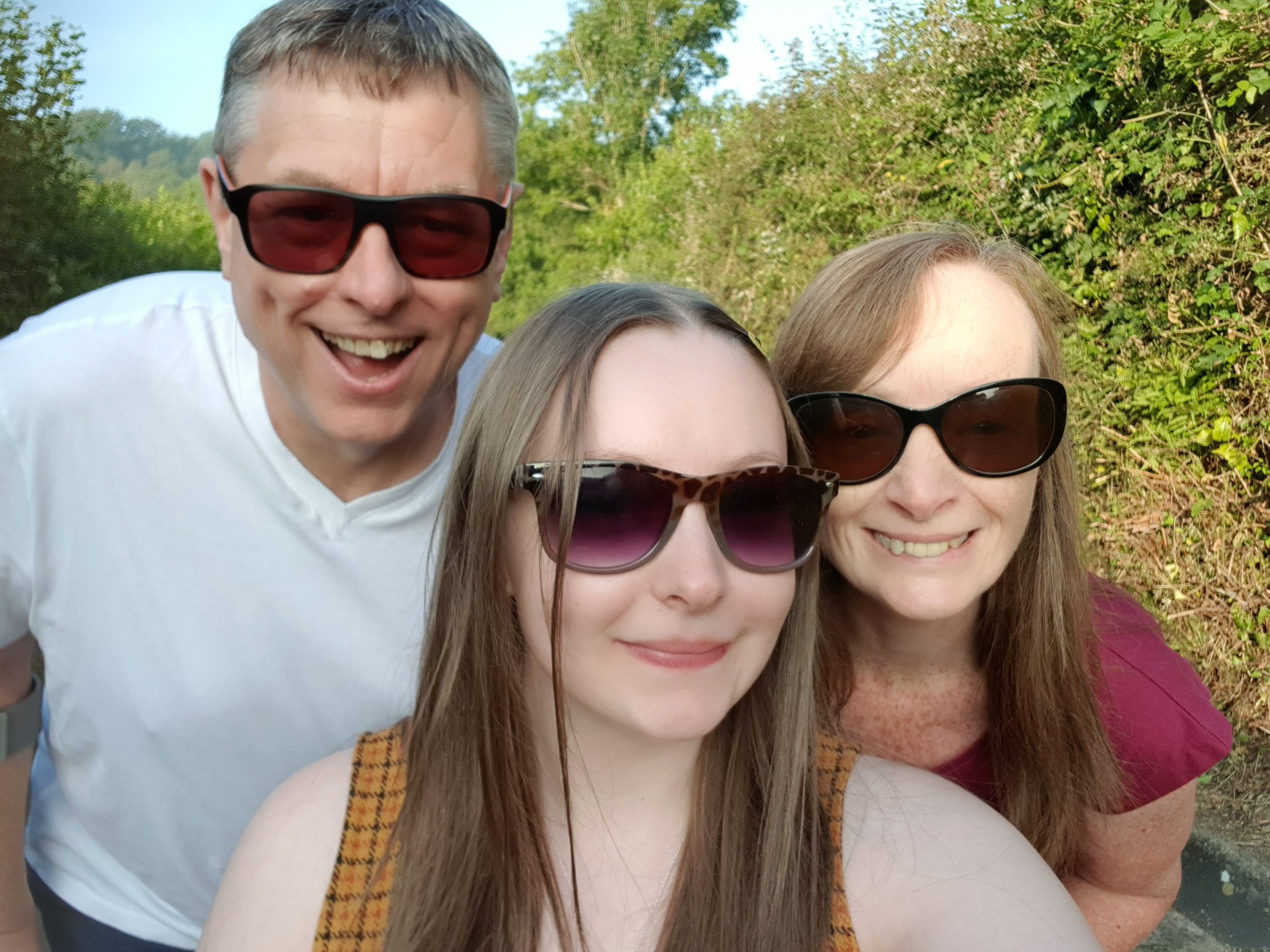
“Two years ago I was on the waiting list to have both my hips replaced, but then I had a procedure – called an arthroscopy – just to see what was going on and that’s when they found the extra damage,” says Kaisha. “I remember waking up from the surgery in absolute agony and it’s basically not got better since.
“It turns out I’d developed a condition called hypersensitivity and that’s got in the way of everything now. My pain management consultant pretty much said this is life for me… it’s starting to spread into certain areas too, so it’s all down my side.
“Anything that’s physically wrong with my hip that needs surgery can make that worse now, so it’s out of the question at the moment. Nobody really knows what I can do, because we don’t know what will make my hypersensitivity worse. I could be in a much worse position after surgery.”
Despite years of tests, Kaisha is yet to be given a definitive reason for the series of challenges she’s faced – and believes many of them are coincidental, rather than all being directly linked.
“I missed out a lot on teenage years and things like that, and I think I’ve only had about six months pain-free in all that time,” says Kaisha. “It’s only been the last two years that I’ve relied on a wheelchair.
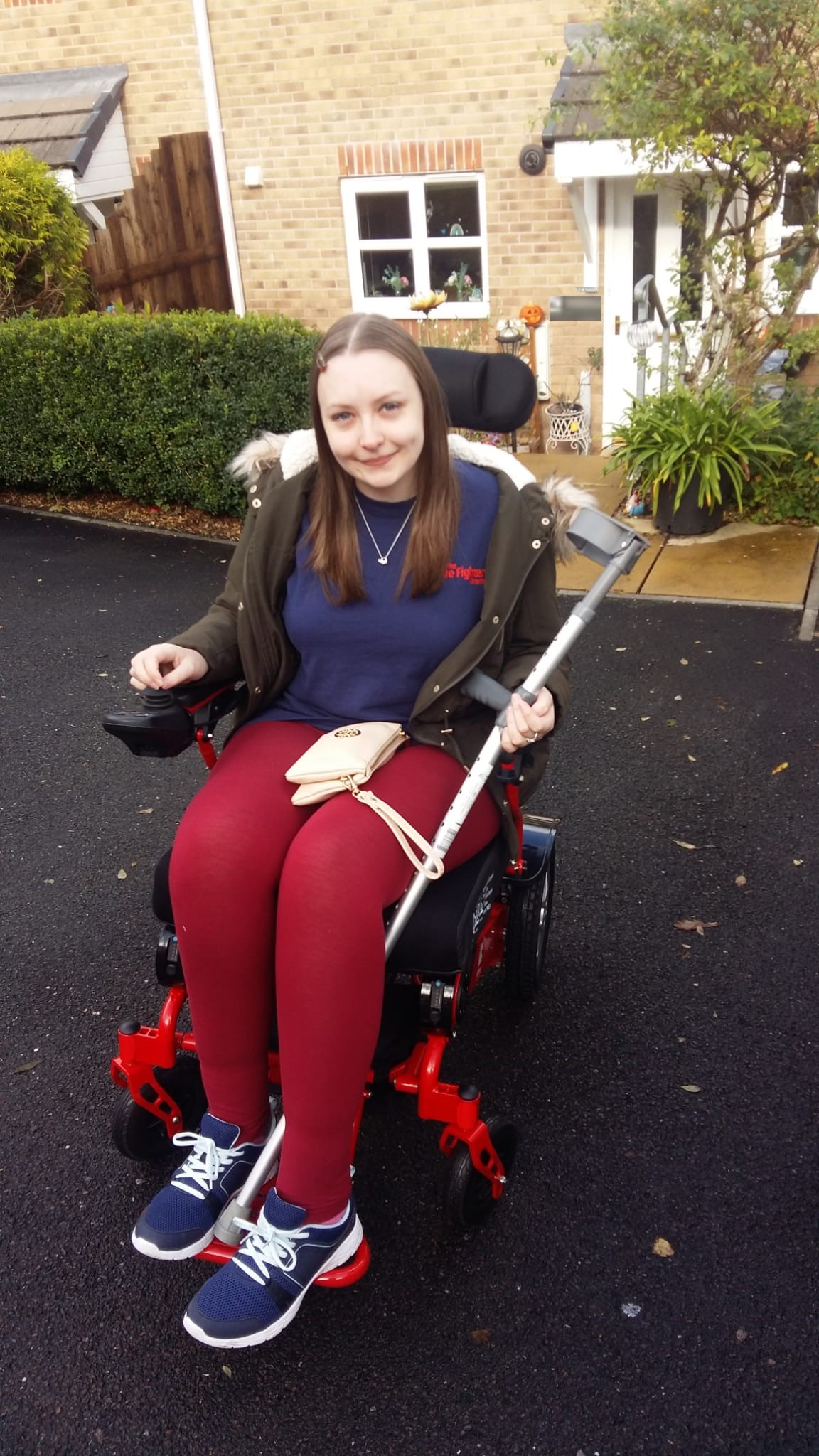
“I don’t go downstairs much anymore and I can use my crutches a bit – but my mobility’s really poor, mainly due to pain.
“Lying down is the most comfortable position I can be in. But I try to sit up as much as possible because it’s a lot easier. My consultant has even said to me, the best thing for me would be to suspend me from the ceiling, but obviously we can’t do that!
“When I want to try and go out, it’s extremely difficult. I did have a normal wheelchair, but I really struggled to wheel myself. That was really tough. It was my parents that suggested we should look into an electric chair.”
Kaisha had known about us for most of her life, as she, her sister and parents had visited Harcombe House, our centre in Devon, for recuperation breaks in the past.
“The Charity’s been part of my life since the beginning,” says Kaisha. “To me and my sister when we were young, it was a holiday, but I’ve since realised it was recuperation for my parents. Both of them have had difficulties and gone to the Charity for help over the years.
“Since then, I’ve used the rehabilitation services myself at Marine Court in Littlehampton, three times in total. The last time was in 2018.”
As Kaisha’s movement began to be more impacted, her dad suggested she reach out to us to see if our Welfare team could support her in any way.
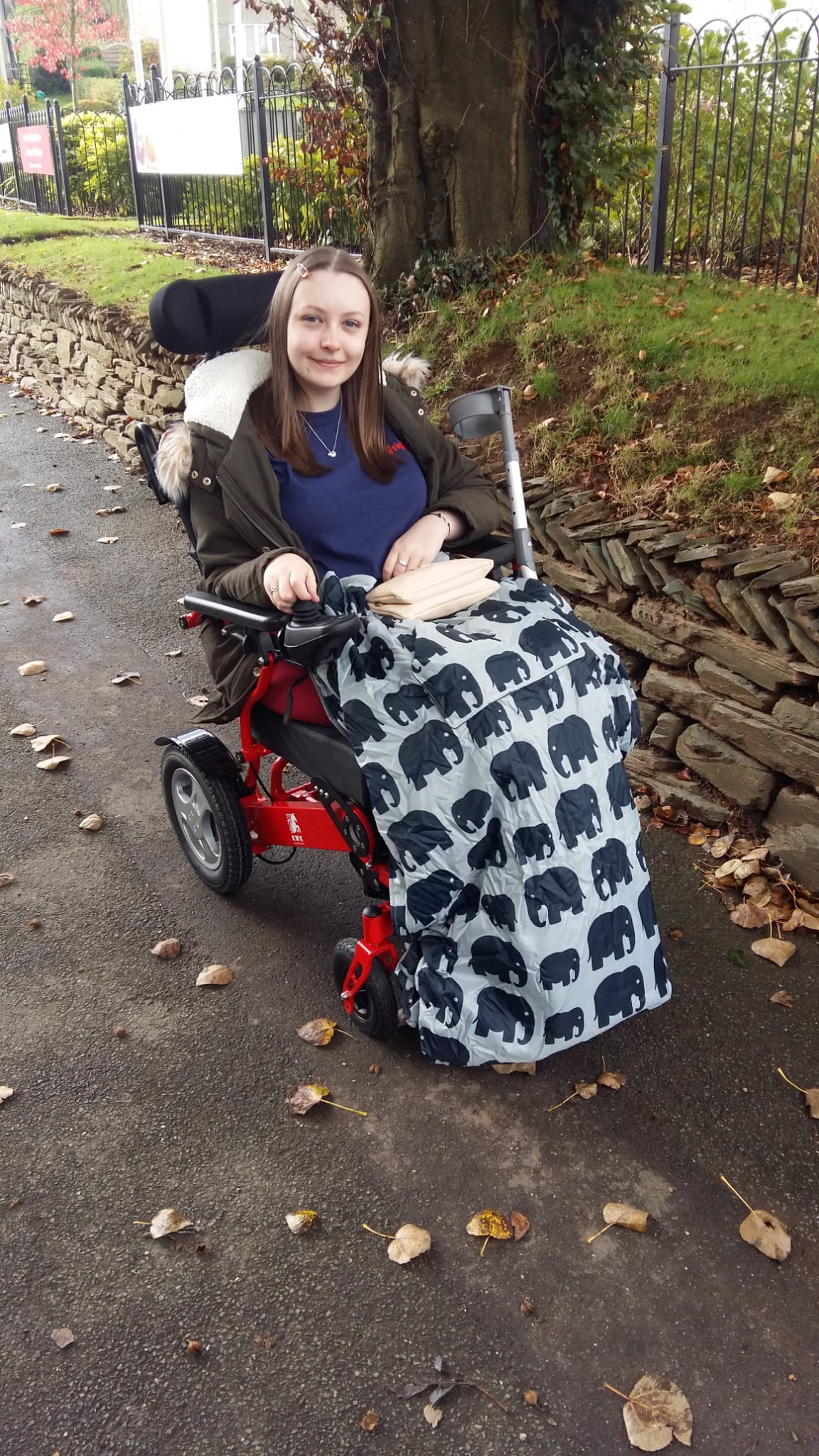
“I remember saying, ‘We can’t do that, I’ve not served in the fire service’… He just said, ‘all you can do is ask’,” Kaisha recalls.
“The people that we ended up getting the wheelchair from had suggested charity funding through someone, and that’s when my dad thought of The Fire Fighters Charity, as we knew what they could do. It happened pretty quickly really.”
Our Welfare team were able to help fund an electric wheelchair for Kaisha, so she no longer needs to rely on the car to get around.
“The Charity called my dad to let him know they could fund it and I felt really emotional,” says Kaisha. “I thought, at the very most, they’d contribute towards it a little bit – I never thought they’d be able to pay for all of it. It was just like, wow.
“It was only about a week later that it was in my living room – it was so quick. I didn’t have to do anything other than book when it was coming!”
Having the wheelchair has already made a huge impact on Kaisha’s life, as she’s not only regained her independence, but can travel further without wearing her arms out or needing someone else to push her.
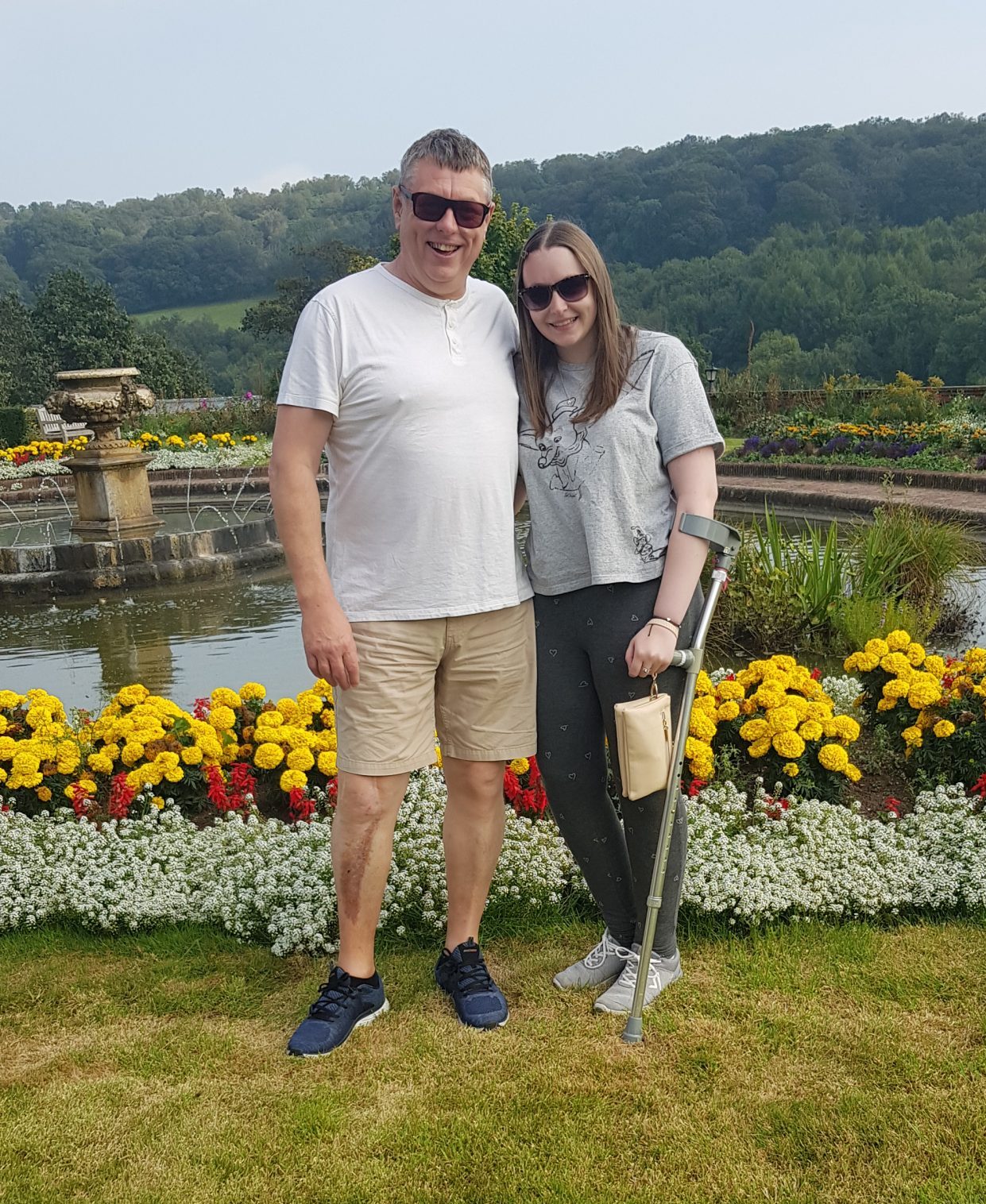
“Going out at all and sitting down, even in a wheelchair, is really painful, so I won’t be going out loads, but it’s just that independence,” says Kaisha. “If I have a good day, I don’t have to be like ‘Mum and Dad, can we go here’. I can get in the wheelchair and go to town myself.
“I went shopping with my sister last week and normally she has to push me round and I have all the bags on my lap because they catch on the wheels…
“I couldn’t believe it when I went out in the electric one. It’s still quite overwhelming being in a wheelchair, but I was by the side of my sister, we were talking, the shopping bags were on the back so we didn’t need to worry, it was amazing. I felt like I was out, relaxed, and having a normal day.
“I think it’s the first time I’ve been able to get into town for three years on my own, without having to use the car.”
Kaisha says, while her conditions have undoubtedly had an impact on her overall wellbeing, she’s managed to stay positive throughout – largely thanks to her family and some new hobbies she’s discovered recently. One of them is cross-stitch, and she’s using her skills to give back to our Charity.
Having learnt how to make greetings cards from home, she’s since completed hundreds which she’s donated to us, to be sold at centres to hopefully raise more vital funds.
“The biggest thing for my mental wellbeing is having my parents here and my sister, her partner and my niece and god-daughter, Poppy. No matter how I feel, I’m generally able to laugh and smile every day,” says Kaisha.
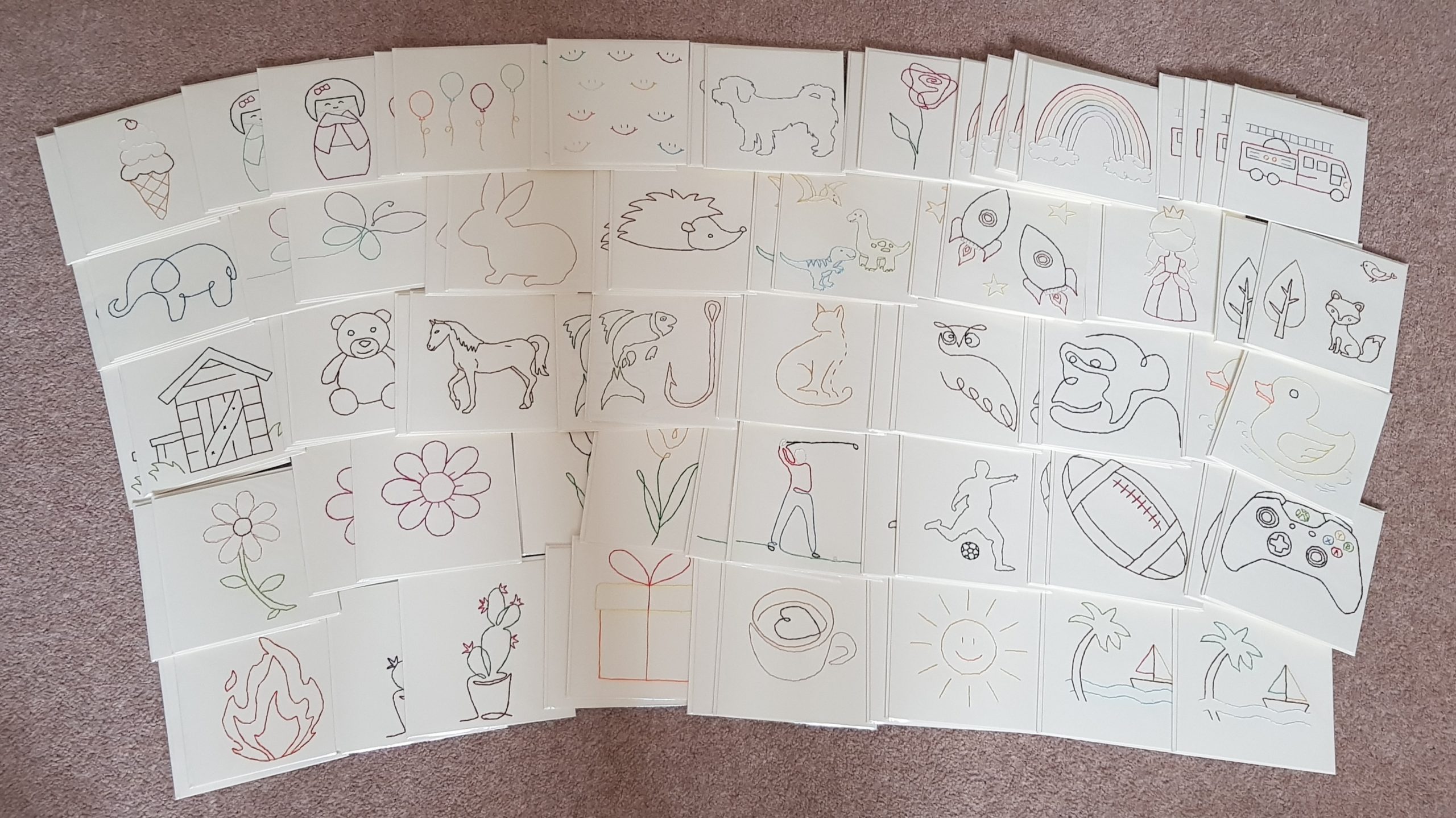
“They’ve just been the biggest support. They’ve had their own problems, but they’re my carers.
“I also have a little dog called Flo who we rescued last year to give me company and who also cheers me up daily, on my awful days she knows and will just sit next to or even on my hips for comfort and a nap.
“This is a Charity that has helped my family a lot, so I will always try and do what I can to give back for the rest of my life now.”
If you’re struggling with your health and wellbeing, or you need support from our Welfare Caseworkers, we may be able to help you. Call our Support Line on 0800 389 8820, make an enquiry online or register for MyFFC and visit the ‘Access Support’ tab.
You can also join our ‘Share Your Story Group in MyFFC to chat to others who have received the Charity’s support, or enquire about sharing your own story.

